EPSCI – POLITICAL ECONOMY FOR DEVELOPMENT AND INTERNATIONAL COOPERATION
–
Objectives and description
–
The Section contributes to activities conducted by CIRPS in the field of higher education and excellence, in particular in relation to the areas covered by the Master in Cooperation and Project Management for Development (promoted by CIRPS) by combining the issues related to:
- theories and policies of development economy and of international cooperation for sustainable development;
- statistical methodologies for the analysis of qualitative and quantitative data applied to sustainable development cooperation policies and projects (SDG agenda).
The training activity at graduate level is completed by the following activities of:
- supervision of PhD thesis with a focus on Political Economy for Development, International Cooperation for Sustainable Development and Data Analysis;
- organization of several specialized seminars for PhD students on the same topics.
The training activity is also supported by a networking activity at the international level, with a focus on specialist training and research activities. In particular, collaboration and exchange relationships are consolidated with:
- at the national level: International Policy Studies Center (CeSPI) (Scientific Director Prof. Zupi);
- at the European level: European network of universities and research centers specialized in training and research on development issues (EADI) (CIRPS is a member;
- at the international level: the network of about twenty universities in Africa, Latin America and Asia, which collaborate in activities of mutual exchange and update on the progress of their research on development and globalization, through the e-Journal of Economics & Complexity promoted by the International University of Hanoi Bac Ha and CeSPI.
In terms of new research projects, a specific area, with a particular focus on the combined training-research-networking front, is that related to the international agenda on sustainable development (2016-2030), a priority area for multilateral and bilateral cooperation.
–
Composition of the Section
Coordinator:
| Marco Zupi |
| marco.zupi@uniroma1.it |
Components:
- Marco De Bernardo
- Sara Hassan
- Alberto Mazzali



